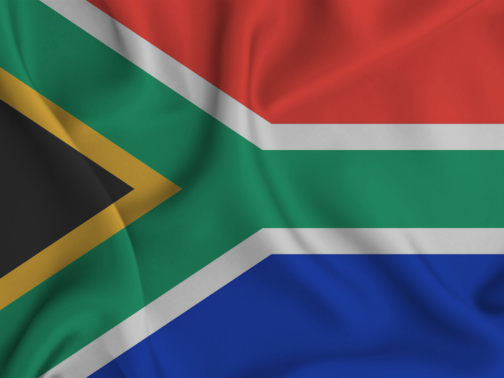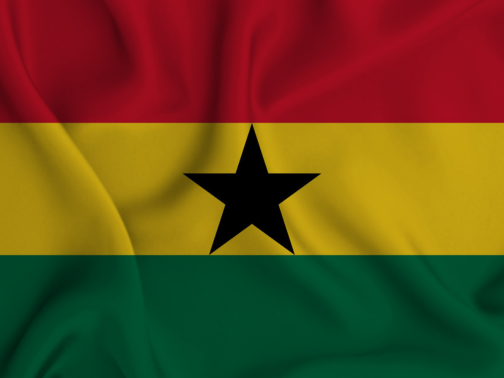Contents
Toggle
Meet David De’ Ath, founder, editor, and writer at Wonderful World English. With his extensive background as an English teacher, David provides valuable insights and practical tips on ESL for students and teachers alike.
English is the most widely spoken and studied language in the world.
High levels of English proficiency go hand in hand with economic growth and open doors to a world of opportunities for those who learn.
Whether in business, tourism, academia, or entertainment, there are endless reasons why English is so heavily prioritized around the world.
English is the world’s lingua franca, which means it is the most popular language of choice among non-native speakers.
Although it is most commonly associated with Western countries like the United States, United Kingdom, Australia, and Canada, English is also the official language of some African countries!
Nigeria has the most English speakers of any African country and holds English as an official language. South Africa, Liberia, and Sierra Leone are the most English-proficient countries on the continent. Other African countries with plenty of English speakers include Kenya, Ghana, Uganda, Tanzania, Ethiopia, Sudan, and Zimbabwe.
I am an experienced English teacher passionate about travel and languages, and today, I want to explore English-speaking countries in Africa.
We will delve into the history and importance of English in the continent and better understand how English plays a significant role in many African countries.
The two main factors we will use to determine a country’s position are the number of English speakers and the level of English proficiency.
Let’s jump in!
Top 10 English-Speaking African Countries
English is widespread in Africa, primarily due to the colonization by the United Kingdom in the 19th century.
Over time, English proficiency grew across the continent, especially in colonized areas.
With over one billion people, English continues to grow and is an official language in 24 African countries.
English proficiency opens doors to endless opportunities in business and academia and is also important in the tourism trade.
Many regional varieties of English have been formed over time by mixing in with local languages and cultures.
These varieties have unique accents and vocabulary but are all based on the English mother tongue.
English proficiency varies significantly in Africa, with more English speakers in major cities and urban areas than in rural ones.
Those with access to better education can also study English at a much higher level than those without.
It’s important to note that finding accurate and up-to-date data regarding English proficiency in Africa is quite tricky.
So, we’ve used various sources and will take inspiration from the EF English Proficiency Index (EPI) to determine the countries that qualify for the list.
Now, let’s look at the top ten African countries where English can be found, either as an official language or as an important one in the nation:

1. South Africa
Coming in at the top of our list as the most English-proficient country in Africa is South Africa!
English is one of eleven official languages in the country and is predominantly spoken as a second language, with only around ten percent of the population holding English as a first language (4.9 million people).
English is the preferred language in the South African education system, with many South Africans prioritizing it in their child’s development.
English is an urban language of public life, widely used in the media, business and government. English is widely used as a second language and common language of communication, mainly in the cities.
South-Africa.info
Urban areas and cities of South Africa have higher levels of English proficiency, especially among white and Indian communities.
Many South Africans are at least bilingual, with many being able to communicate in English, Afrikaans, and another one of the many languages in the country.

2. Nigeria
Next, and the country with the most English speakers in Africa by volume, is Nigeria!
Nigeria is the most populated country in Africa, with over 200 million people.
With an estimated 53% of Nigerians speaking a form of English, Nigeria is one of the largest English-speaking countries in the world. In Nigeria, English is a co-official language alongside three other indigenous languages: Hausa, Igbo, and Yoruba.
Oxford University Press
English proficiency in Nigeria varies depending on the region, with the major cities like Lagos, Abuja, and Port Harcourt being far more proficient than rural areas.
This is because of higher exposure to English and more access to formal education for locals.
It’s not unusual for a Nigerian to communicate more comfortably in their local tongue.
Many Nigerians speak Pidgin English, a mix of English and their indigenous language.

3. Ghana
Ghana is another African country where English speakers can be widely found.
With around thirty million people in the country, Ghana is not the most populated on this list, but about a third of the population can speak English.
English is the official language of Ghana, with nearly ten million speakers.
Statista.com
The Ghanaian government strongly emphasizes English within the education system, and there are many initiatives and programs to promote English within the country.
On top of this, English is prominently used in Ghana’s entertainment and news industries, with English newspapers, radio stations, and TV channels being easily accessed by many.
Ghana is one of the safest countries in Africa.
It could be an ideal destination for anyone wanting to travel and explore this awesome continent, especially if on a budget!
Check out the guide below for more information!
Related Article: Cheapest English-Speaking Countries to Live in (Top 6)

4. Sierra Leone
Despite English not being the first language for many Sierra Leonans, it is still an official language of this West African country.
English plays a significant role in education, business, and commerce in Sierra Leone, and the country’s urban areas hold a much higher proficiency than its rural ones.
4.3 million people from the country speak English, an approximate 83.53 % of the country’s population.
Milestone Localization
This makes Sierra Leone one of the most English-proficient countries in Africa, albeit with a tiny population relative to much of the rest of the continent.

5. Liberia
Liberia is another small West African nation with a very high level of English proficiency.
Due to its establishment as a colony by the American Colonization Society in the early 19th century, which brought freed African-American slaves to the region, Liberia has a rich history of English influence.
English remains the official language of Liberia and is widely used within government, schools, and businesses.
Since Liberia’s official founding in 1824, English has maintained its status as the most prominent language in the country. English serves as the official Liberian language, and an estimated 3 million people speak the form of pidgin English known as Liberian Kreyol language or Liberian Pidgin English.
Familysearch.org
English ability varies in the country, with more educated individuals, usually in urban areas, having a much better grasp of the language.

6. Kenya
Kenya is another African country with a sizeable English-speaking population.
English is one of two official languages in Kenya, alongside Swahili, and it serves as the language of instruction in schools.
Today, it’s estimated that about 2.7 million people speak English to some degree.
Babbel.com
Kenya’s English proficiency has improved in recent years, especially as the country has seen greater access to education and media.
The Kenyan government has also encouraged English learning through various policies and programs.
Kenya is rated high on the EPI, which is inconsistent with many online sources, so we placed it sixth on the list.

7. Zimbabwe
English holds an important position in Zimbabwe and is one of the country’s official languages.
English is emphasized in schools, and many people across the country can understand the language.
There are about 12 million native speakers of English in Zimbabwe who use it as their national language. The population consists mostly of people from Shona, Ndebele, and Tsonga tribes. Around 18% of Zimbabweans speak English as a first or second language.
Universal-translation-service.com
English is more commonly found in urban areas and major cities in Zimbabwe.
It is also widely used in the country’s government, education system, and business.

8. Tanzania
English is one of the official languages of Tanzania, alongside the African language of Swahili.
Although English speakers can be found here, it is not as commonly used as Swahili, which is most Tanzanians’ first language.
The main language of the country is Swahili. However, the two official languages of Tanzania are Swahili and English. Despite its status as an official language, it is estimated that only 15% of the country’s total population is English-speaking.
Escaledenuit.com
English is mainly used within the Tanzanian government, throughout the education system, and in business.
Many people begin learning English as a second language at school in Tanzania.

9. Uganda
The central African country of Uganda is yet another where English speakers can be found.
English proficiency is much higher in the capital city, Kampala, and other major cities than in rural areas.
Even if on paper it is estimated that Uganda is an English-speaking country, it should be remembered that only two million inhabitants speak this language. This represents about five or six percent of the population.
Escaledenuit.com
Like many other African countries, English is emphasized within the Ugandan education system.
Many of the countries’ most educated can speak English with confidence, and it is an important language in an official context.

10. Sudan
Although Arabic is the most spoken language in Sudan, a portion of the population still can speak English.
English is used in the country’s government, education system, and business.
Sudan is split into two halves, North Sudan and South Sudan.
North Sudan mostly speaks Arabic, while English is the most widely spoken in the South.
(In South Sudan) It is estimated that about 85% of the population speaks English, while Arabic is spoken by about 15% of the population.
Englishraven.com
In North Sudan, 10.2% of the population can speak English.
The countries on this list are where English can be most commonly found, but there are many other African countries where English speakers also reside, but they did not make it into the top ten.
African countries that hold English as an official language include Botswana, Cameroon, Eswatini (formerly Swaziland), The Gambia, Lesotho, Malawi, Mauritius, Namibia, Rwanda, Seychelles, Zambia, The Republic of Congo, and The Democratic Republic of Congo.
For information on how you can begin your journey teaching English in Africa, check out the link below!
Related: Teach English in Africa: Your Ultimate Guide

Future of English in Africa
With the expansion of globalization, the future of English in Africa looks promising.
It is a valuable tool in many aspects of society.
As access to education increases, more and more people will be given the chance to learn English, boosting their prospects.
Many African governments strongly emphasize the world’s lingua franca, and many programs have been implemented to help increase English proficiency around the continent.
With the rise of English proficiency, Africa can confidently conduct itself on the world stage.
From international trade and commerce to tourism and entertainment, a world of possibilities awaits this emerging beautiful continent.
Much like Africa, Asia is also emerging rapidly on the global stage, and English proficiency is growing in the world’s largest continent.
If you want to find out more about English-speaking countries in Asia, check out the guide below!
Related Article: What Asian Countries Speak English? – Full Guide

Conclusion
Africa is a continent rich in natural beauty and fascinating cultures.
English can be commonly found in the continent, primarily due to British colonization and influence.
English proficiency opens doors to a world of opportunities, such as access to better education and increased job prospects, which allows countries to grow economically.
24 African countries hold English as an official language, with varying levels of proficiency and ability.
Many African areas speak a mixture of English and a local dialect, each with its unique accent.
African governments have emphasized English across many schools and institutions to improve general proficiency in the world’s lingua franca.
As Africa continues to evolve and engage with the global community, the importance of English is expected to grow.
We hope this has helped you better understand the influence of English in Africa and which countries are the most proficient.
Take care on your journey!
Image Attribution: All images licensed via canva.com





